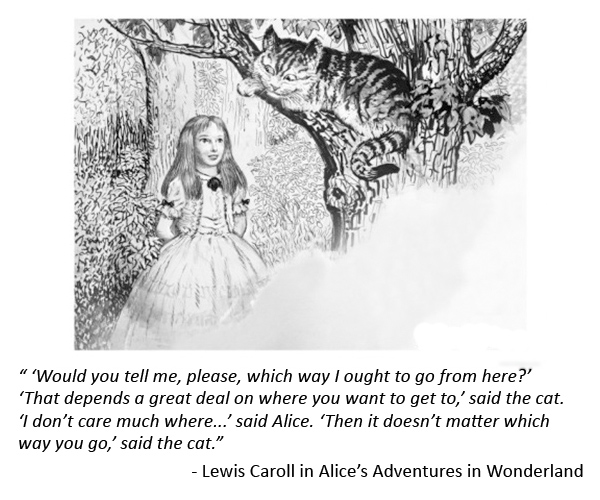People’s time and interest are precious, limited resources. Only convene meetings that require interaction and have a clear purpose and specific desired outcomes.
I follow three guidelines. First, I won’t go to a meeting unless the convener communicates beforehand what they want to accomplish. Second, if I ignore the first guideline and go to a meeting without knowing the purpose, at the start I ask, “What do you hope to accomplish at this meeting?” Third, if I am the one convening the meeting or have been asked to facilitate it, I make sure that the purpose and desired outcomes are clear.
An outcome is a tangible or specific result you hope to achieve. Too often people develop agendas that include only topics (“Budget”) or the process (“Discuss the budget”) and as a result the participants, and sometimes even the convener, are not clear on what they are trying to get done. Discuss the budget for what purpose? The discussion drones on without a way for people to know when they have accomplished what they wanted to accomplish because it was not clear in the first place.
For example, a purpose might be to “Create a common understanding of the mid-year budget status.” The outcomes might be:
- Understanding the status of projected vs. actual expenditures;
- Agreement on a process and schedule for submitting final department budget projections.
Admittedly, not all interactions lend themselves to framing the destination in concrete terms. You don’t need to force fit why you’re meeting into a purpose and outcomes, especially if they are yet to emerge from a group’s deliberation. There are times when a vague purpose is the closest you can get. Even a vague purpose can, however, be helpful. For example, the purpose could be as broad as “Understanding people’s point of view and hopes for the future so that we can determine if there is enough common ground to move forward together.”
Specifying purpose and desired outcomes for a meeting:
- Helps clarify who needs to be in the meeting;
- Allows for the development of a detailed agenda with specific topics, process steps to achieve the outcomes, and a time frame for each topic;
- Helps people feel safe: they know what they are trying to get done and when they have done it;
- Prevents unnecessary uncertainty that generates fear, frustration, or conflict;
- Primes everyone to stay focused on achieving the purpose and outcomes;
- Enables everyone, not just the leader or facilitator, to keep the conversation on track and productive.
Next time you are about to convene a meeting ask, “Why I am calling this meeting? What do I want to accomplish?” And, when you are invited to a meeting ask, “What do you hope to achieve?”
At the start of a meeting, review the purpose and desired outcomes and ask for people’s agreement to achieve them. “Are you willing to work with one another and me to accomplish these outcomes?” Make sure this is a real question not a rhetorical one. As soon as you build agreement with participants on the purpose and outcomes of a meeting, it shifts it from your meeting to everyone’s.


“How We Talk Matters” is extremely relevant to my work at the Alzheimer’s Association. How our brains process information changes dramatically from the ideal, healthy brain, to the brain degenerating due to disease.
Having, at the core, knowledge of how we can maximize communication and lead effective meetings will–no doubt–propel me and the people I encounter (with and without Alzheimer’s) further down the path of meaningful connection and action.
When I read this blog, I hear Mary Gelinas’ voice and imagine Roger James nodding: yes. Yes. This is how to lead to the next step in the process.
Thank you for this, Ali! So good to see you at the john powell event!